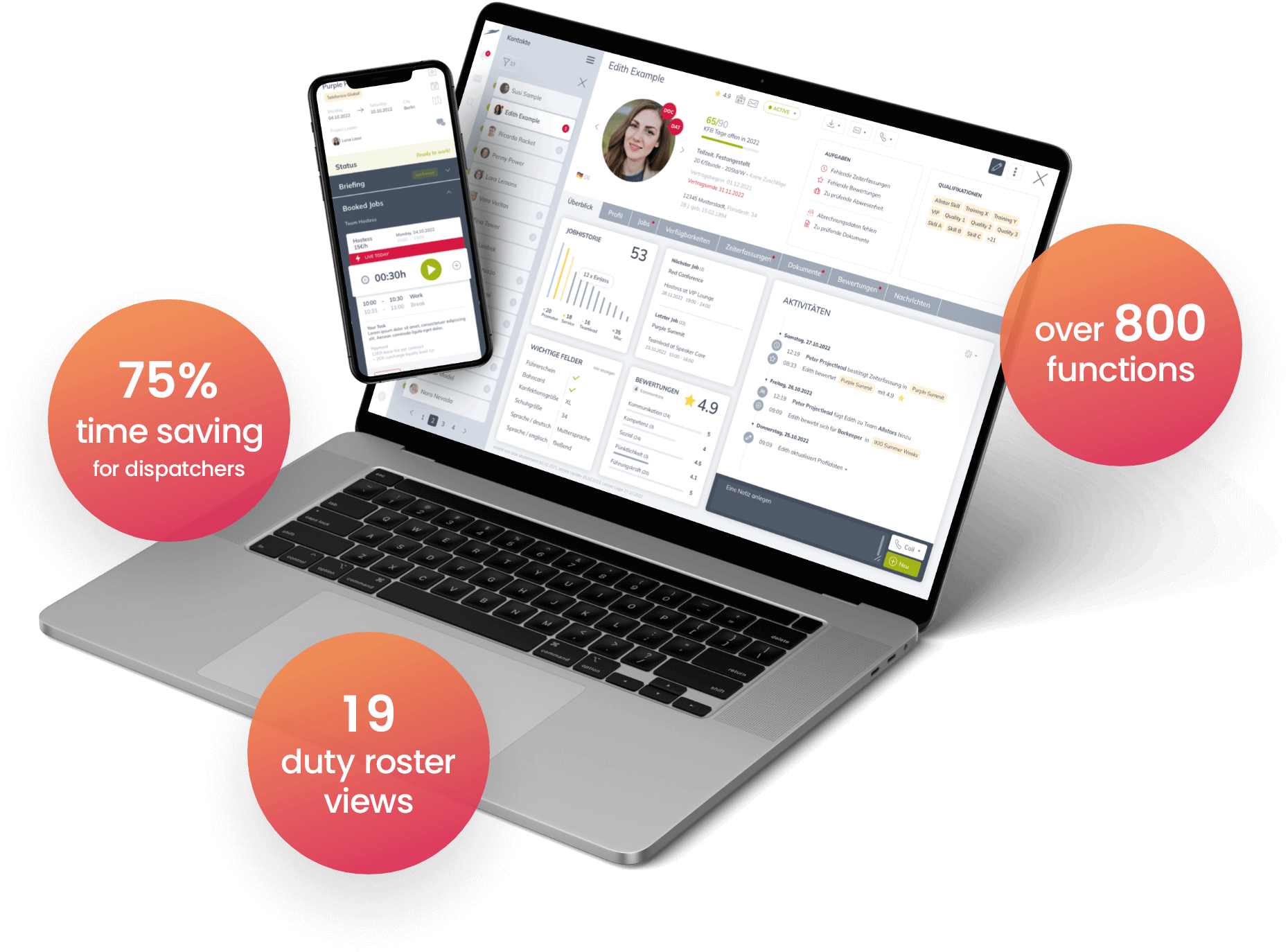Termination during the probationary period
A probationary period is agreed at the beginning of an employment relationship. It serves to allow the employer and employee to get to know each other. The probationary period is recorded in writing in the employment contract.
For new employees, the following applies during the probationary period the same rights and obligations as for employees whose probationary period has already expired. Both employers and employees have the same rights and obligations during the Trial period the possibility of termination. The notice period during the probationary period is shorter than for an employment relationship outside the probationary period. Employers and employees must observe the legal regulations in the event of termination during the probationary period.
Duration of the probationary period
The German Civil Code (BGB) regulates in Section 622 paragraph 3 regulates the duration of the probationary period. The probationary period may not last longer than six months. Most companies make full use of the six-month period. According to a ruling by the labor court on January 24, 2008, Ref.: 6 AZR 519/07, the maximum duration of the probationary period can also be fully exhausted for simple jobs.
There is no legally prescribed minimum duration for the probationary period. Employers have the right to determine the probationary period individually, but it may not exceed six months.
One exception is the probationary period for trainees, the duration of which is specified in the Vocational Training Act (BBiG). It must be at least one month and may not be longer than four months.
Important: The duration of the probationary period is usually specified in the employment contract. If no probationary period is mentioned in the employment contract, no probationary period applies to the employee. From the first day of work, the contractually agreed or statutory notice period applies.
Important for termination during the probationary period
The notice period during the probationary period is defined in Section 622 paragraph 3 BGB regulated. It must be at least two weeks. Employers and employees may deviate from the notice period stipulated in the BGB. Notice period of at least two weeks. This agreement must be stipulated in the employment contract. The statutory notice period of two weeks may not be undercut. An extension of the notice period is possible.
However, collective agreements may stipulate shorter notice periods during the probationary period than those set out in Section 622 (4) of the German Civil Code (BGB).
Both contracting parties may terminate the contract on any day during the probationary period, subject to the two-month notice period. Termination is therefore also possible on the 7th or 18th of a calendar month. It is important that the notice of termination reaches its recipient during the probationary period and not afterwards.
No protection against dismissal during the probationary period
During the probationary period, employees are not protected against dismissal under the Dismissal Protection Act (KSchG). Protection against dismissal only applies after six months of employment. The Dismissal Protection Act can be applied at the earliest after the end of the maximum probationary period of six months. A six-month waiting period applies to employees before the Dismissal Protection Act comes into effect. In contrast to the probationary period, the statutory or contractually agreed notice period must be observed during the waiting period.
Employees are entitled to a severance payment in the event of dismissal during the probationary period not. Important: The probationary and waiting periods may coincide. Employees can be dismissed without any problems until the last day of the probationary or waiting period. If employers give notice during this period in order to circumvent the protection against dismissal, the dismissal may be invalid due to breach of trust.
Requirements for termination during the probationary period
Employees are not completely unprotected during the probationary period, even if they are not yet protected against dismissal. Employers must comply with the regulations for dismissal, otherwise the dismissal may be invalid.
If there is a works council in the company, it must also be consulted prior to any intended dismissal of employees during their probationary period. Employers must inform the works council of the reasons for the dismissal. If no specific reasons for dismissal can be given to the works council, it is sufficient for employers to provide a personal assessment.
Dismissal is also not permitted during the probationary period:
- be discriminatory and put employees at a disadvantage
- and used as a punishment for the employees
- be arbitrary or immoral and for irrelevant reasons
Employers do not have to give reasons in the notice of termination, which is due to the lack of protection against dismissal. Employees can also resign without giving reasons. However, they should justify the termination if they assume that the employer has breached their duties.
Reasons for termination by the company during the probationary period
There may be various reasons for termination by employers during the probationary period:
- personal reasons such as frequent short-term illnesses, protracted sick leave or withdrawal of a professional driver’s license
- behavioral reasons due to a breach of the obligations arising from the employment contract
- Operational reasons, if restructuring or staff reductions are necessary
Termination without notice by employers during the probationary period
Termination without notice by the employer is possible during the probationary period if there is a valid reason. The termination is then effective immediately. The notice period of two weeks does not have to be observed.
Even during the probationary period, a prior warning is usually a prerequisite for termination without notice. No prior warning is required for serious reasons such as threats of violence, sexual harassment or theft.
Termination without notice is also possible by employees, for example in the event of repeated non-payment of salary or sexual harassment by employers.
Disclaimer
Please note that the texts on this website and the related contributions are provided for general informational purposes only and do not constitute tax or legal advice in the proper sense. For individual cases, we always recommend seeking specific legal advice tailored to the circumstances of the situation. The information is provided to the best of our knowledge and belief, without any guarantee of accuracy, completeness, or validity.

























